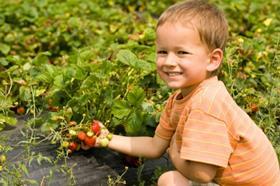
The EU and its member states must invest more effort and money in promoting healthy eating and the consumption of local foodstuffs amongst children.
That was the verdict of the European agriculture committee this week, as it amended draft rules on schemes to provide fruit, vegetables and milk in schools.
'A healthy and balanced diet is the foundation of good health and yet the consumption of fruit, vegetables and milk has been declining across the EU with many negative consequences for Europeans,' said Marc Tarabella, who drafted the agriculture committee's resolution. 'The aim of the new rules is to do more in our schools – not only to provide our children with healthy foodstuffs, but to better educate them about healthy eating habits.'
The agriculture committee endorsed plans to merge two schemes which are currently separate – one providing milk for schoolchildren and the other fruit – and to extend the educational measures already included in the fruit scheme to cover milk as well.
In addition, the committee also called for a number of other initiatives, including member states earmarking 10-20 per cent of the EU funding they receive to educational activities, designed for example to promote healthy eating habits and sustainable production, and including visits to farms and the occasional distribution of local specialities.
The set of amendments to the draft law, as approved by the agriculture committee, should be scrutinised by the full House during the 27 May plenary session in Brussels.
The school milk scheme, focusing mainly on the distribution of milk and milk products, was set up in 1977 while the school fruit scheme was introduced in 2007 and included an educational dimension. Both were created to promote the consumption of fruit, vegetables and milk and milk products but have until now operated under different legal and financial arrangements.
All 28 member states participate in the school milk scheme and 25 implement the school fruit scheme (all except the United Kingdom, Finland and Sweden).
Consumption of fruit, vegetables and milk continues to fall across Europe. Over 20m children are overweight and adolescents are on average consuming only 30 per cent to 50 per cent of the recommended daily intake of fruit and vegetables.



